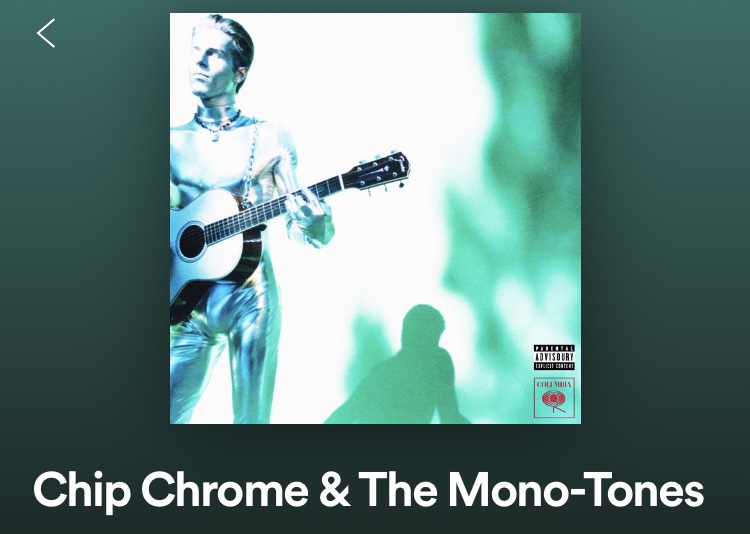The Neighourhood has been previously recognized for the moody blend of rock and R&B seen in their first two albums, “I Love You” and “Wiped Out,” which garnered them a rather large and eccentric teenage fan base. Over the course of their career, their sound has varied slightly, implementing genres outside of indie rock such as experimental rock, electronic and hip-hop. However, the core sound of every album has always been distinct, beachy guitar riffs which they never seem to stray too far from.
Following the success of the 2013 song “Sweater Weather,” The Neighbourhood has struggled to maintain the level of relevancy that frontman Jesse Rutherford and the rest of the band desired. Over the course of the last seven years and the three studio albums that the band has released, Rutherford has struggled with a multitude of mental health problems and drug abuse stemming from the music industry and relationships, amongst other issues.
Their appropriately titled 2018 project “Hard to Imagine the Neighbourhood Ever Changing” left fans expecting the band to change in some way, but when Rutherford started painting himself silver and posting photos on instagram under the alias Chip Chrome, I think it’s safe to assume that no one saw it coming. The Ziggy Stardust inspired character appears to be the physical manifestation of Rutherford’s personal struggles and the band’s desire to stay in the spotlight.
Their September 25 release, “Chip Chrome & The Monotones,” maintains their previously mentioned “core sound” but also includes elements of hip-hop and electronic music in a more polished and developed way than seen in previous efforts, however, the album as a whole lacks cohesiveness amongst these songs. The album jumps from low-tempo pop, to upbeat electronic, to trap inspired hip-hop, to acoustic rock with what seems like no rhyme or reason. Individually, each song is well composed, but the large genre variety of the songs fails to create the unified sound expected in a concept album.
The album starts with “Chip Chrome,” a 30-second futuristic, electronic instrumental track that sounds like it’s straight out of a 1970s sci-fi movie. This intro sets the mood for the album as it flows perfectly into the second track on the album “Pretty Boy,” an eerie, low-tempo ballad about the importance of love in Chip’s life. Romantic relationships are a common theme amongst the album with the upbeat electro-pop track “Lost in Translation” exploring struggles with communication and the hip-hop/trap track “Boo-Hoo” talking about Chip’s insecurities in his relationship.
Love is obviously a large part of Chips’s identity, but another central theme to the album is Chip’s overall perception of self and the band as a whole. The catchy, guitar heavy “Devil’s Advocate” is about the voice inside his head that is constantly reminding him of the worst things that can happen as a result of his actions. The next song, “Hell or High Water,” is another electronic track (that even samples some Spongebob themes), discussing his failures and ability to persevere. “Cherry Flavoured” is about the idea of sugar coating things and making them into something they’re not, and falling to the vices as a result. These three songs together illustrate his thoughts on his career thus far: Chip is hard on himself for not actualizing the perfect career he envisioned growing up, so he indulged in drugs to quiet the voices. But despite the failures, they are what led him to where he is today which is explained best in the line, “I went through Hell to get to high water.”
The final two songs on the album, “Tobacco Sunburst” and “Middle of Somewhere” are both acoustic tracks with the former being more folk inspired and the latter being the most reminiscent of their early work. Together, the songs communicate a hopeful message for the future of Chip Chrome. They show how he has learned the importance of the people in his life and has learned to slow down and appreciate the time he has left on Earth. “Middle of Somewhere” is the perfect close to the album as it shows that he has grown and healed mentally, but he still has a long way to go.
With what the album lacks in unity of sound, it makes up for with the message behind the songs. It successfully communicates the triumphs and tribulations within the life of Chip Chrome and gives us insight into the inspiration of the character — Rutherford himself. Overall, the album was a valiant attempt at a concept album that just fell short musically. With this being the final album from the band’s contract with Columbia Records, the fate of the band’s (and Chip Chrome’s) future is uncertain, yet more experimentation and distance from their “core sound” is to be expected in whatever comes next for The Neighbourhood.
Score: 6.5/10
Best Songs: “Devil’s Advocate”, “Middle of Somewhere”
Best Lyrics: “If a God is a dog, and a man is a fraud, then I’m a lost cause” – Devil’s Advocate


